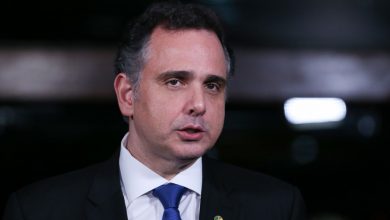Recent discoveries made by the Federal Police are being used by President Lula (PT) as ammunition against his adversary, Jair Bolsonaro (PL). However, within the government and among lawmakers, there is division regarding the actions of Minister Alexandre de Moraes and the progress of Lieutenant Colonel Mauro Cid’s plea deal.
Ministers and allies of President Lula in Congress approach Cid’s collaboration with caution, as it was made while he was in prison and under the supervision of the Supreme Federal Court (STF). Members of this group argue that this conduct resembles methods used during Operation Car Wash (Lava Jato).
The hope is that Cid’s plea deal is strong and rich in evidence because, otherwise, they claim, there would be no reason to close it. The absence of evidence is one of the criticisms presented against the plea deals made in Lava Jato.
This position differs from that of Minister Flávio Dino (Justice), who publicly supports and defends all actions of the Federal Police, which is under his jurisdiction.
Cid’s plea deal was approved on September 9th by Moraes.
One of the main concerns among Lula’s allies is the concentration of power in the hands of the minister.
While Moraes has targeted adversaries of President Lula, his actions also represent an excessive strengthening of power, according to some.
In conversations, allies of the president attribute Moraes to a center-right origin, having been nominated by former President Michel Temer (MDB), which raises concerns about judiciary activism.
According to these individuals, Flávio Dino’s nomination to the STF would result in the formation of a triumvirate in the court, also composed of Moraes and Gilmar Mendes.
These arguments did not prevent Lula from publicly supporting Moraes, who was also consulted for judicial appointments.
In addition to the political strengthening of the Supreme Court, allies of the president fear that this focus on Bolsonaro and his allies will end up amplifying the power of the opposing political group to Lula’s.
The assessment is that Moraes took the necessary measures to maintain democracy in the face of Bolsonaro’s coup-like actions, even though some of them have been controversial from a legal standpoint. The problem, they point out, is that now it is uncertain when these measures will cease.
There is also the fear that the minister may eventually direct his weapons against the left.
As reported by Folha, President Lula’s aides and allies in Congress are apprehensive about a potential arrest resulting from the progress of the investigations against the former president.
The Federal Police currently lacks sufficient evidence to make a preventive arrest of Bolsonaro and is also considering whether it would be appropriate to do so if enough evidence emerges.
This calculation takes into account the political effects that such an arrest could generate, as well as the expectation that Bolsonaro will already have been convicted by the STF next year.
Investigators believe they have evidence to indict the former president for criminal organization, embezzlement, and money laundering. There is evidence of these crimes in the investigation of the jewelry case.
When asked about the topic, Lula avoided commenting on the plea deal itself but mentioned the suspicions surrounding Bolsonaro.
“I don’t know [the content of the plea deal], I cannot make any comments about what I don’t know, only the delegate and the colonel who gave the testimony know. The rest is speculation,” said the president during a trip to India in September.
At the time, he also said that each day there is more certainty “that there was the prospect of a coup” and that Bolsonaro “was deeply involved.”
Cid’s plea deal contributed to a series of elements in investigation 4874, which is under Moraes’ responsibility and encompasses investigations into the sale of jewelry gifted to authorities, the alleged falsification of vaccination cards, and the circumstances surrounding coup-related drafts and conversations found on Cid’s cell phone.
The elements presented by the lieutenant colonel that drew the most attention from investigators were those related to the attempted coup.
The plea deal instrument was one of the main pillars of the investigations carried out in Lava Jato.
Former executives of construction company Odebrecht, politicians, and even one of the key figures in the operation, the money changer Alberto Youssef, have either attempted to revise the obligations imposed on them in the past or have criticized the circumstances under which they agreed to collaborate with authorities.
In this list are also heavyweight targets of the operation who signed plea deals years ago.











